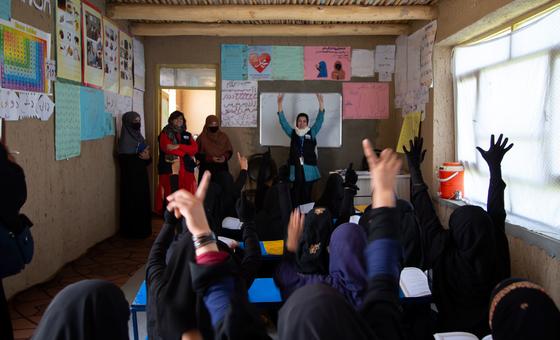Afghanistan’s Logar province is one of the most conservative areas in the country. Even before the decision of the de-facto authorities to suspend girls’ access to beyond primary education, most families did not let their girls go to school. Most girls and women in this province are illiterate.
More than 1,000 women and young girls, from 15 to 45, are now learning how to read, write, and calculate for the first time in their lives through literacy classes supported by the UN Educational, Scientific, and Cultural Organization (UNESCO).
Bi Bi, a 32-year-old home-based tailor, shared her story, which is common among her classmates.
“In the past, I was not allowed to attend school by my father, but now my husband allows me to join UNESCO’s classes and learn,” she said. “I have nine children: eight girls and one boy. I want my girls to go to school and I want to help them learn.”
Learn more about the agency’s community-based programme, here.

All students in UNESCO’s community-based literacy classes are experiencing schooling for the first time in their lives.

